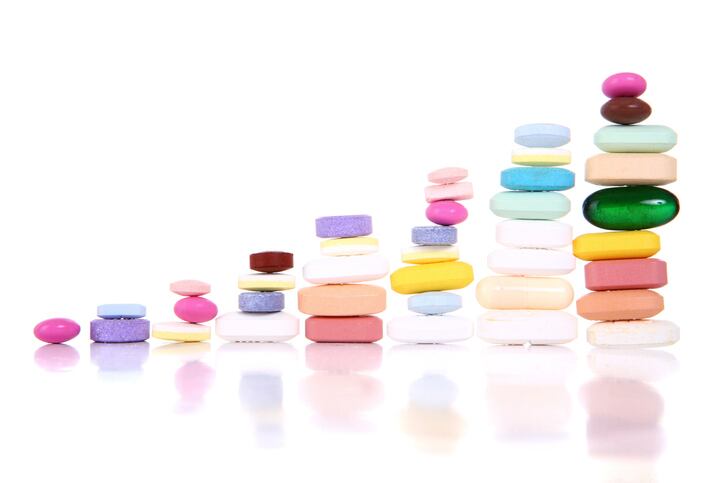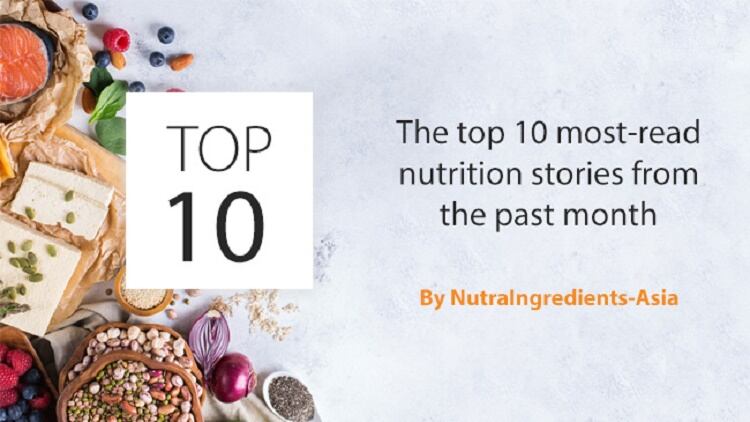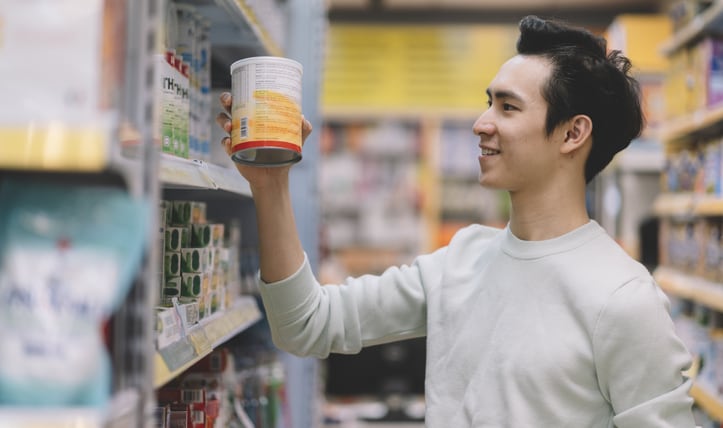1. ‘The longevity pill’: NMN craze in China drove sales spurt for US, Japanese, NZ brands
China’s increasing interest in nicotinamide mononucleotide (NMN), colloquially known as ‘the longevity pill’ in the country, have push sales to a new high for brands from the US brand Doctor’s Best, New Zealand’s EZZ, and Japan’s NADaltus.
According to the China Chamber of Commerce for Import and Export of Medicines and Health Products (CCCMPHIE), the influx of NMN products from the US had boosted the country’s overall exports of nutraceuticals into China in this year.
The interest in NMN first started after China health foods firm Xiamen Kingdomway introduced its subsidiary firm – Doctor’s Best’s product during the mid-year, Charles Diao, regulatory manager at US-China Health Products Association, noted.
Doctor’s Best hit its US$1m mark within its first 10 days of launch in China. It is sold at RMB$1,999 (US$303) per bottle of 60 capsules.
2. Halal opportunities: Swisse launched halal-certified supplements in South East Asia
Swisse launched a halal-certified multivitamin in Singapore and Malaysia and is planning to launch more of such products in the region.
The subsidiary of Hong Kong-listed H&H Group said most of its products are made in accordance with halal standards, but it is now working on securing official halal certificates.
The company currently has two halal-certified products, namely Swisse Ultivite E-Sential Multivitamin and Swisse Ultibiotic Daily Balance Probiotic, after obtaining halal certification from the Halal Certification Authority Australia (HCAA).
The halal-certified Swisse Ultivite E-Sential Multivitamin is available in Singapore and Malaysia.
3. South Korean supplement trends: Red ginseng and probiotics popular as 69% said they use health functional foods
Nearly seven in 10 Koreans said they had bought and consumed health functional foods last year, according to a survey conducted by the Ministry of Food and Drug Safety (MFDS) involving 1,500 men and women aged 19 and above.
The new data came after the number of South Koreans consuming health functional foods rose steadily in recent years.
In 2012, there were 50.2 per cent of South Koreans purchasing such product, which increased to 60.6 per cent in 2017, 63.6 per cent in 2018, and 67.6 per cent in 2019.
Last year, the figure hit 68.9 per cent.
4. Immunity concerns: More than half of Filipino children deficient or insufficient in vitamin D - new population data
More than half of children in the Philippines were deficient (10.3%) and insufficient (50.3%) in vitamin D, according to an analysis of serum vitamin D data collected from six to 12 year old children.
This study was based on the 2018 National Nutrition Survey data (NNS 2018), funded by the Government of the Philippines.
A total 60.6% of Filipino children were found to have vitamin D deficiency (<50 μmol/L) and insufficiency (51–74 μmol/L).
Vitamin D, also known as the sunshine vitamin, is essential for bone growth, mental health and most recently, studied for its effect on COVID-19 immunity.
5. Doctor’s Best expands NMN product line in China as sales hit nearly US$10m last year
Doctor’s Best is expanding its nicotinamide mononucleotide (NMN) product offering in China this year as product sales hit RMB$64m (US$9.8m) in 2020.
This was according to the FY2020 annual report released by Kingdomway, the Shenzhen Stock Exchange-listed company which is the parent firm of the US supplement brand.
Doctor’s Best launched its NMN product first in China last year, which in turn sparked frenzy in the country for similar products from the US, Japan and New Zealand.
Kingdomway said its plans for Doctor’s Best in China was to expand its NMN product line to satisfy needs of different people and sales channels.
6. NAD+ precursors: Hong Kong, ANZ and China help drive Chromadex results as firm fires warning over NMN explosion
Nicotinamide riboside (NR) supplement specialist Chromadex’s had posted strong regional and global FY2020 financials, but the firm issued a warning of ‘concerning behaviour’ from some nicotinamide mononucleotide (NMN) brands, especially in China.
Chromadex’s FY2020 net sales hit US$59.3m, up 28 per cent yoy, with personal healthcare retail chain AS Watson’s activities in Hong Kong its biggest sales driver in APAC.
The company also recorded a gross profit of US$35.2m last year, up from US$25.7m in 2019.
The nicotinamide riboside (NR) firm sells its ingredient through the trademark Niagen, while its finished product is sold under the brand Tru Niagen. It first ventured into APAC, starting with Hong Kong four years ago.
7. Unilever’s exclusive insights: Four key trends driving APAC’s online supplements growth
Unilever identified four emerging trends from online sales of health supplements across Asia Pacific, including the younger generation viewing vitamins and supplements as lifestyle products, and how online shopping events such as Super Brand Days were effective in attracting new consumers, it said in an exclusive interview.
The FMCG giant had been on an acquisition spree for health supplement brands in recent years, with OLLY, Onnit, SmartyPants, and Liquid I.V as examples.
Addressing a wide variety of health concerns, these brands consist of products for beauty, immunity, physical fitness, mental wellbeing, catered to consumers of different ages and even pets.
8. Daigou still slow: Infant nutrition brands drove sales at mother-and-baby stores, e-commerce in China
Strengthening distribution in mother-and-baby stores, complemented by effective local e-commerce and cross-border e-commerce (CBEC) operations would be the way for overseas infant formula brands to thrive in China, with the daigou channel still seeing weak signs of recovery amid travel restrictions, an industry analyst said.
Since the COVID-19 outbreak, there have been significant changes in the way consumers purchase infant formula products.
Pre-COVID, e-commerce was the popular purchase channel of infant formulas in tier one and two cities, while mother-and-baby stores was the go-to in third and fourth tier cities, Michael Norris, research and strategy manager at Agency China told NutraIngredients-Asia.
With the pandemic, the uptake of e-commerce have picked up in the lower tier cities as well.
9. WATCH: Nestle Health Science, Esperer Nutrition on NPD for glucose control nutrition via new formats and ingredients
New product development for glucose control and diabetes prevention nutrition werecutting across new dosage formats, the use of plant-based ingredients, pre/probiotics, and even the inclusion of artificial intelligence (AI) to make health decisions, according to global nutrition giant Nestle Health Science and India start-up Esperer Nutrition.
Characterised by a high fasting glucose level – above 7.0 mmol/L – diabetes is a common chronic disease seen in many parts of Asia partly due to a carbohydrate-loaded diet.
It ranks high on the national health care agenda for some countries, such as Singapore.
This was why Nestle Health Science has earmarked the South East Asia region as the launchpad for its new glucose control product.
10. Nutra trends 2021: GNC, Nestle, Kirin, GO Healthy weigh in on this year’s key developments
Major nutra brands GNC, Nestle, GO Healthy, and Kirin have shared with us the key trends they believe would propel the sector in 2021.
Immune health was said to continue to see a stable and strong consumer demand, as consumers continue to prioritise immunity amid the pandemic.
This was according to GO Healthy, which said it saw a significant lift in the sales of its immune products last year. Examples include its GO Vitamin C, GO Vitamin D3 and GO Zinc Complex products.
“For 2021, we are looking to strengthen our positioning with the key immunity products, with a specific focus on the ingredients that’re popular during the pandemic, whilst maintaining our high strength, convenient 1-A-Day brand positioning,” Kevin Anstiss, marketing and innovation director said.




